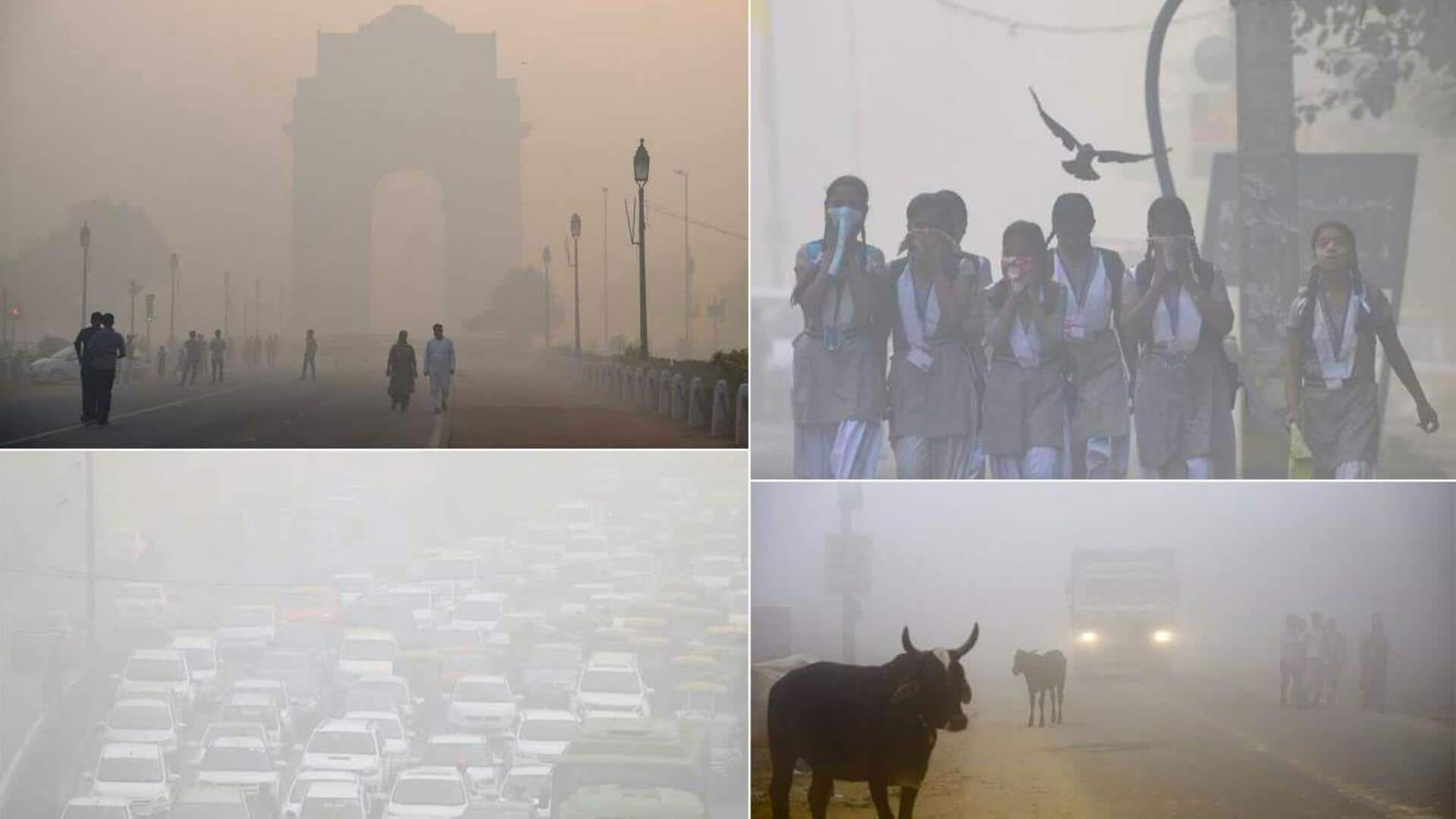
1.5 million Indian deaths annually linked to air pollution: Study
What's the story
A study published in The Lancet Planetary Health journal has highlighted a worrying connection between air pollution and deaths in India. The research, conducted by Ashoka University and the Centre for Chronic Disease Control, discovered that around 1.5 million deaths per year between 2009 and 2019 were linked to long-term exposure to PM2.5 pollution. PM2.5 refers to fine particulate matter that measures 2.5 micrometers or less in diameter.
Pollution exposure
Entire Indian population exposed to high PM2.5 levels
The study also found that the entire Indian population of 1.4 billion lives in areas where PM2.5 levels exceed the World Health Organization's (WHO) recommended annual average of five micrograms per cubic meter. Shockingly, 82% of India's population, or about 1.1 billion people, live in areas where these levels exceed the Indian National Ambient Air Quality Standards (NAAQS) of 40 micrograms per cubic meter annually.
Mortality correlation
Study finds link between PM2.5 pollution and mortality rates
The researchers used satellite observations and more than a thousand ground-monitoring stations across India to analyze annual PM2.5 concentrations at the district level between 2009 and 2019. They found that a 10 microgram per cubic meter increase in PM2.5 pollution per year was linked to an 8.6% increase in annual mortality rates.
Regional disparity
PM2.5 exposure varies across regions, contributes to premature deaths
The study also observed stark differences in PM2.5 exposure across regions and years. The lowest was recorded at 11.2 micrograms per cubic meter in Arunachal Pradesh's Lower Subansiri district in 2019, while the highest was 119 micrograms per cubic meter in Ghaziabad, Uttar Pradesh, and Delhi in 2016. The study also estimated that PM2.5 exposure contributed to roughly 5% of total mortality between 2009-19.
Remarks
Remarks by experts
"Delhi may get the headlines, but this is a problem all over India. Nationwide efforts are needed," said Joel Schwartz, professor at Harvard T.H. Chan School of Public Health. "This nationwide analysis brings critical evidence to policymakers about the severe health impacts of air pollution in India. Mortality is evident at PM2.5 levels far below current Indian standards, which is alarming," Petter Ljungman, associate professor at Karolinska Institutet and principal investigator for the CHAIR-India consortium, said.